Expert proctology support to ensure safe, effective, and lasting recovery.
Immediate treatment for anal fissure is essential as it could become a chronic condition. You can avail the best-in-class treatment for anal fissures at HeptaCare Health, as we are equipped with cutting-edge laser surgery, anorectal specialists, and medical care coordinators at no-cost EMIs.
Happy Patients
Disease
Hospitals
Cities
An anal fissure is a small tear in the lining of the anal canal. It can cause discomfort, pain, and bleeding during bowel movements.
There are two types of anal fissures: acute anal fissure and chronic anal fissure.
Acute Anal fissures are typically caused by trauma to the anal canal, such as passing a large bowel movement. It can be treated with some ointments, medications and home remedies within a few weeks.
Chronic Anal fissures are tears that persist for more than six weeks. They are often associated with underlying conditions such as inflammatory bowel disease or sexually transmitted infections. Chronic fissures are better treated with surgery.
Treatment options for anal fissures include dietary changes, topical medications, and surgery i.e. lateral internal sphincterotomy (LIS) in severe cases.
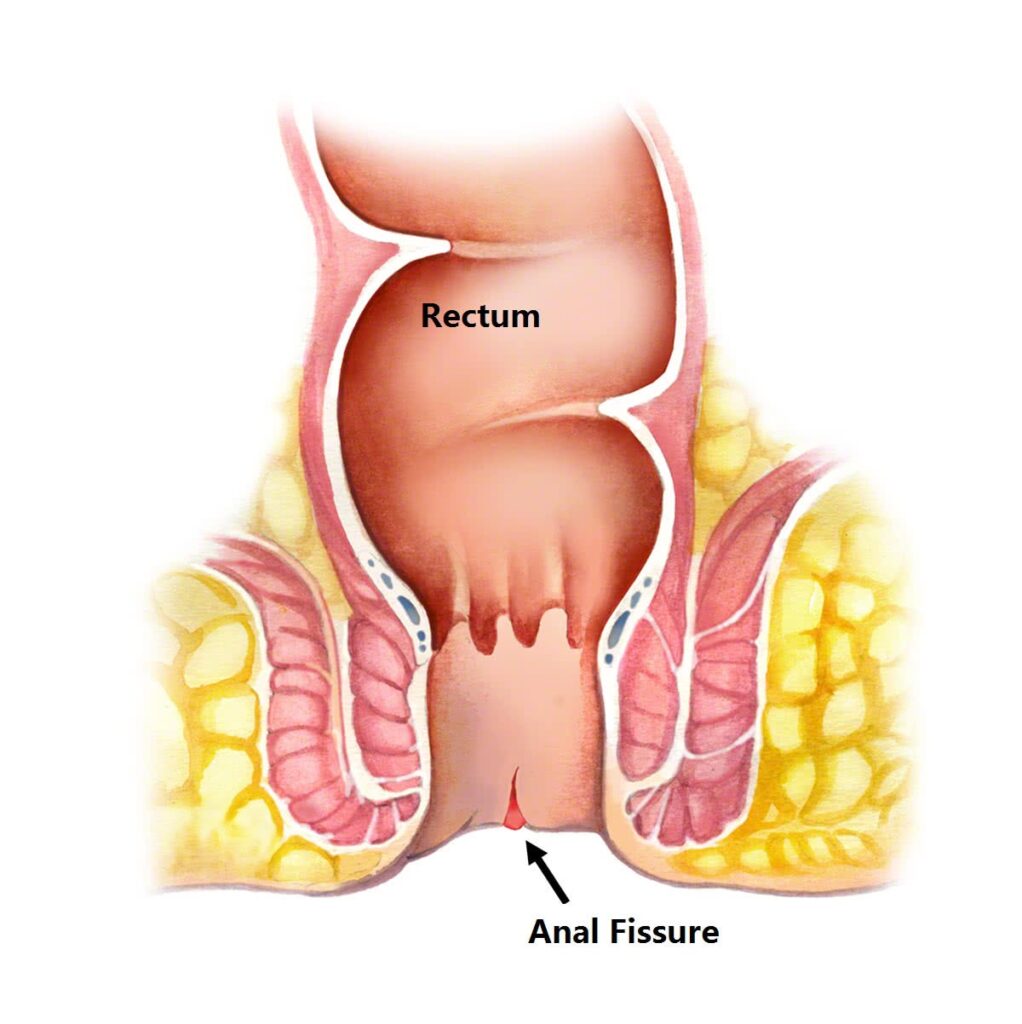
To diagnose an anal fissure, your doctor will typically begin by asking you about your symptoms and medical history. They may also perform a physical examination to check for any visible signs of a fissure, such as a small tear or crack in the skin around the anus.
In some cases, your doctor may need to perform a more detailed examination, such as an anoscopy, to get a closer look at the affected area.
During an anoscopy, a small, flexible tube with a camera on the end is inserted into the rectum to allow the doctor to examine the anus and rectum in more detail. This is an outpatient procedure and is performed in the doctor’s clinic.
In some cases, the doctor may also recommend additional tests, such as a stool sample or blood tests, to check other possible causes of your symptoms. Once the diagnosis of the anal fissure has been confirmed, the doctor may suggest the best suitable treatment plan, which may include medications, lifestyle changes, or in severe cases, surgery.
Treatment options for anal fissures vary depending on the severity of the fissure. There are two types of treatment methods for anal fissures, surgical or non-surgical.
Non-surgical approaches include dietary changes, such as increasing fiber intake and drinking more fluids to soften stools and reduce the need to strain during bowel movements. Topical medications, such as nitroglycerin ointment, can also help relax the anal sphincter and promote healing.
In more severe cases, surgery may be necessary. Procedures such as lateral internal sphincterotomy or fissurectomy can help to relieve symptoms by reducing pressure on the anal sphincter and promoting healing. It is important to consult with a healthcare provider to determine the best treatment approach for individual cases.
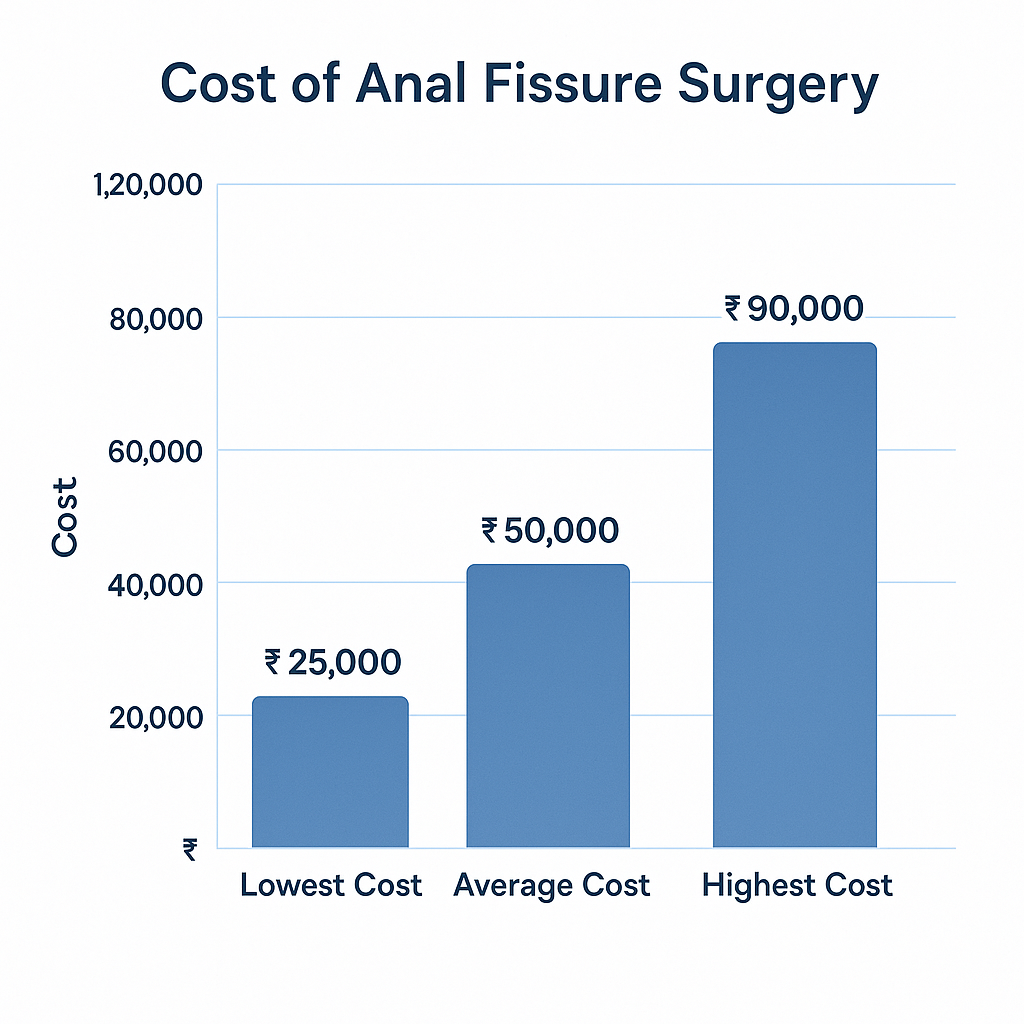
There are two surgical approaches for anal fissure surgery.
Open surgery for anal fissures is the traditional method to treat fissures. The following steps are involved in open surgery for anal fissure.
Laser-assisted surgery is the most effective treatment for chronic fissures.
The following steps are carried out during the procedure:
Laser anal fissure surgery is usually suggested for individuals in which conservative measures, such as dietary changes, stool softeners, and topical medications, have stopped working.
Here are some benefits of laser anal fissure surgery –
While preparing for surgery, it is important to be well-informed about the procedure, what to expect, and self-care tips to help you recover safely after the surgery.
Some common preparation tips are as follows:
The recovery period may vary depending on the type of treatment, surgical or non-surgical. Usually, non-surgical treatment approaches may take a much longer time to cure fissures as compared to anal fissure laser surgery.
It takes between 4 to 8 weeks for anal fissures to heal with medication. However, the recovery period may be even longer based on individual factors such as age, general health, and the severity of the fissure. Also, it is important to note that medication alone may not be sufficient for complete healing. It is recommended to consult a proctologist for proper diagnosis and the best treatment option.
There is no fixed timeline for healing anal fissures with home remedies, the process can take anywhere from a few days to a few weeks, depending on the severity of the fissure and the effectiveness of the remedies used. However, it is important to note that home remedies may not work for everyone, and if the symptoms persist or worsen, it is advisable to seek medical attention.
Recovery time after open surgery typically takes around 4 to 6 weeks, during which you may experience some discomfort and pain. To speed up the healing process, it’s important to follow your doctor’s post-operative instructions and take rest.
You may take up to 1-2 weeks to recover completely after the laser anal fissure surgery, lateral internal sphincterotomy. But you can return to your normal routine within a week after the anal fissure laser surgery for anal fissures. It is the best and most effective procedure to treat anal fissures within a short period of time.
Here are some general tips to help you recover safely after anal fissure surgery.
Like any surgery, anal fissure surgery is also associated with some risks and complications, including;
There are several lifestyle changes help relieve discomfort and promote safe recovery, as well as minimize the chances of recurrence after anal fissure surgery.
The cost of anal fissure typically ranges between INR 55500 to INR 91800. The final cost of anal fissure surgery can be different for each individual depending on various factors such as hospitalization charges, consultation charges of proctologists, choice of hospital, insurance coverage, cost of anesthesia, charges of an anesthesiologist, severity of the condition, cost of diagnostic tests, etc.
Usually, anal fissure surgeries are covered under health insurance, but you should ask your insurance provider about the coverage of your policy.
If you choose Heptacare Health for anal fissure treatment, our dedicated insurance team can help you in claiming your insurance on your behalf and make your treatment journey as easy as possible.
What are the Non-Surgical Treatment Options for Anal Fissure?
Fissures can be treated at home by non-surgical treatments if it is diagnosed in their initial stage. Some non-surgical treatments for anal fissures are discussed below:
There are some home remedies and self-care tips that may relieve the pain and discomfort associated with mild anal fissures and allow them to heal properly.
Here’s a list of the best ointments available in the market to relieve anal fissures discomfort.
With surgical or non-surgical treatment, anal fissures heal over time. Here are some indications which show that the fissure is healing.
If left untreated, anal fissures can lead to chronic pain and discomfort and various serious complications.
To avoid complications, it is important to seek medical treatment for anal fissures as soon as possible.
Maintaining a healthy diet is always beneficial. Here are some foods that you should add to your diet to relieve anal fissure discomfort.
Here are some foods you should avoid if you have anal fissures, as they can alleviate pain and discomfort.


Based on 7721 Recommendations | Rated 4.68 Out of 5
Happy Patients
Clinics
Cities
Surgeries
Doctors
Hospitals

Advanced, non-surgical care for painful anal fissures with quick relief and minimal downtime.
Expert proctology support to ensure safe, effective, and lasting recovery.

Get relief from painful piles with advanced laser treatment.
Minimally invasive, no stitches, same-day discharge…

Heal painful anal fissures with advanced, non-surgical care.
Quick relief, minimal downtime, expert proctology support…
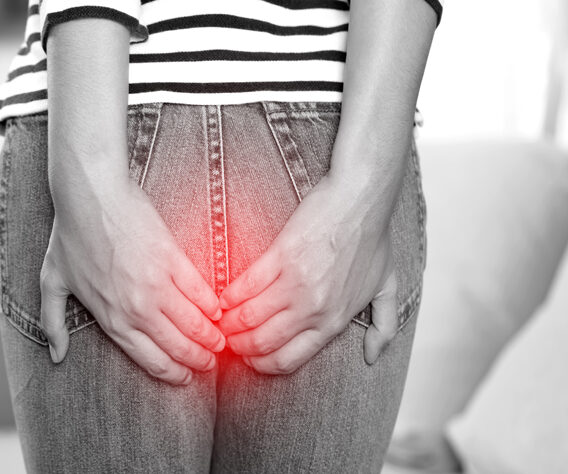
Get permanent relief from pilonidal sinus with laser surgery.
Painless procedure, quick healing, same-day discharge.
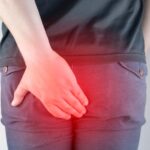
Advanced treatment for rectal prolapse by expert surgeons.
Safe procedure, minimal pain, long-term relief.
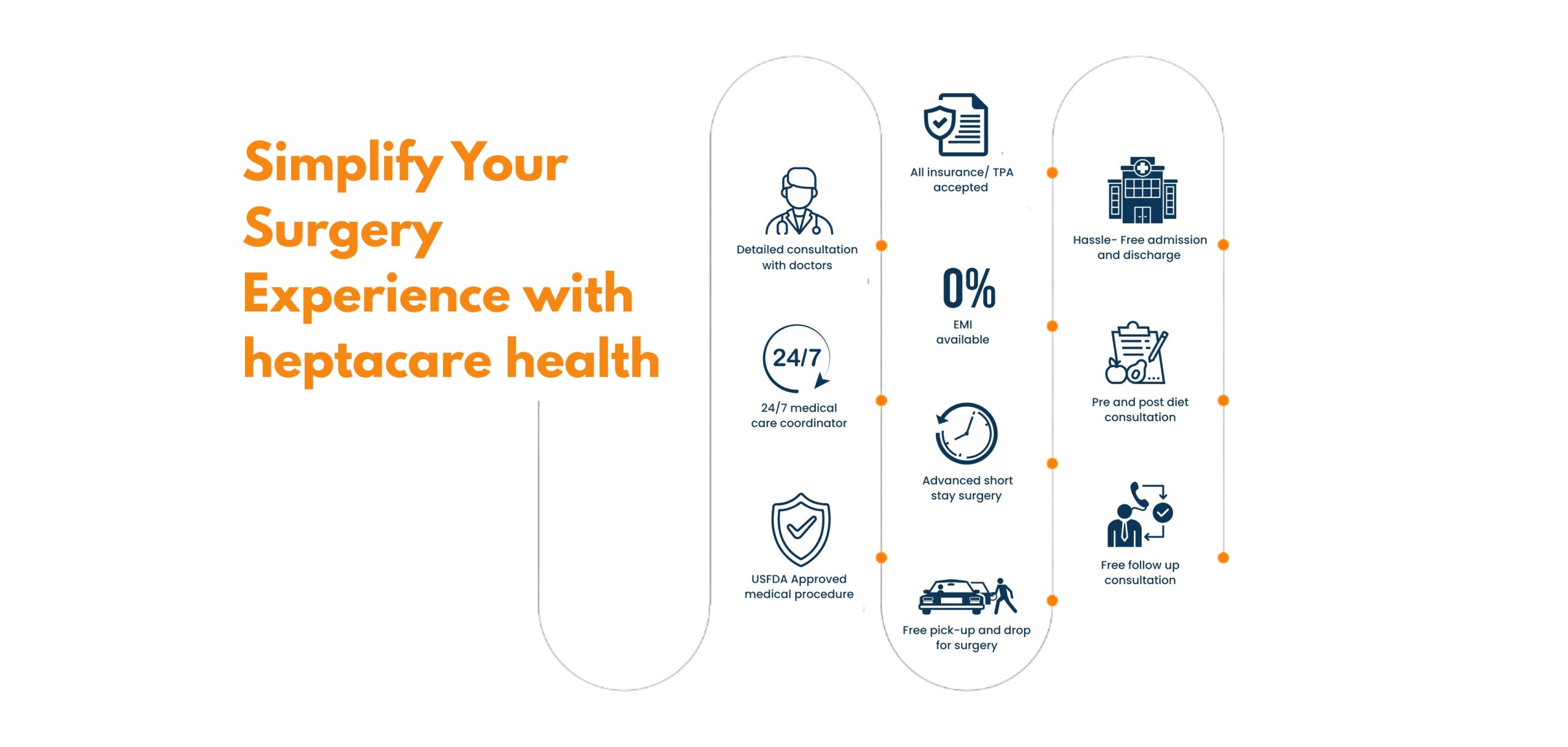
Common symptoms include itching, pain during bowel movements, bleeding, and swelling around the anus.
Yes, most health insurance plans cover Fissure surgery, including laser treatment.
Eat a high-fiber diet, drink water, avoid straining during bowel movements, and exercise regularly.
It’s a safe and effective method with minimal side effects and faster healing than traditional surgery.
● fissure laser surgery cost in Vizag ● low-cost fissure surgery in Hyderabad ● cashless fissure treatment near me ● painless fissure surgery in Vijayawada ● fissure treatment with insurance in Vizag ● fissure removal surgery cost in Hyderabad ● fissure operation packages in Vijayawada ● affordable fissure treatment near me ● fissure laser treatment clinic in Hyderabad ● fissure doctor consultation charges in Vizag ● best fissure surgery cost in Vijayawada ● fissure treatment hospital near me ● fissure laser operation price in Hyderabad ● low-cost fissure laser treatment in Vizag ● fissure removal cost near me ● fissure treatment with EMI in Vijayawada ● fissure surgery specialist near me ● fissure surgery packages in Hyderabad ● fissure treatment clinic near me ● fissure laser surgery near me
Disclaimer: **The result and experience may vary from patient to patient.. ***By submitting the form or calling, you agree to receive important updates and marketing communications.
Getting an accurate diagnosis can be one of the most impactful experiences that you can have.

cure with care
Copyright © 2025. All rights reserved.
Consult with our expert surgeon for more than 50+ diseases
Happy Patients
Hospitals
Cities